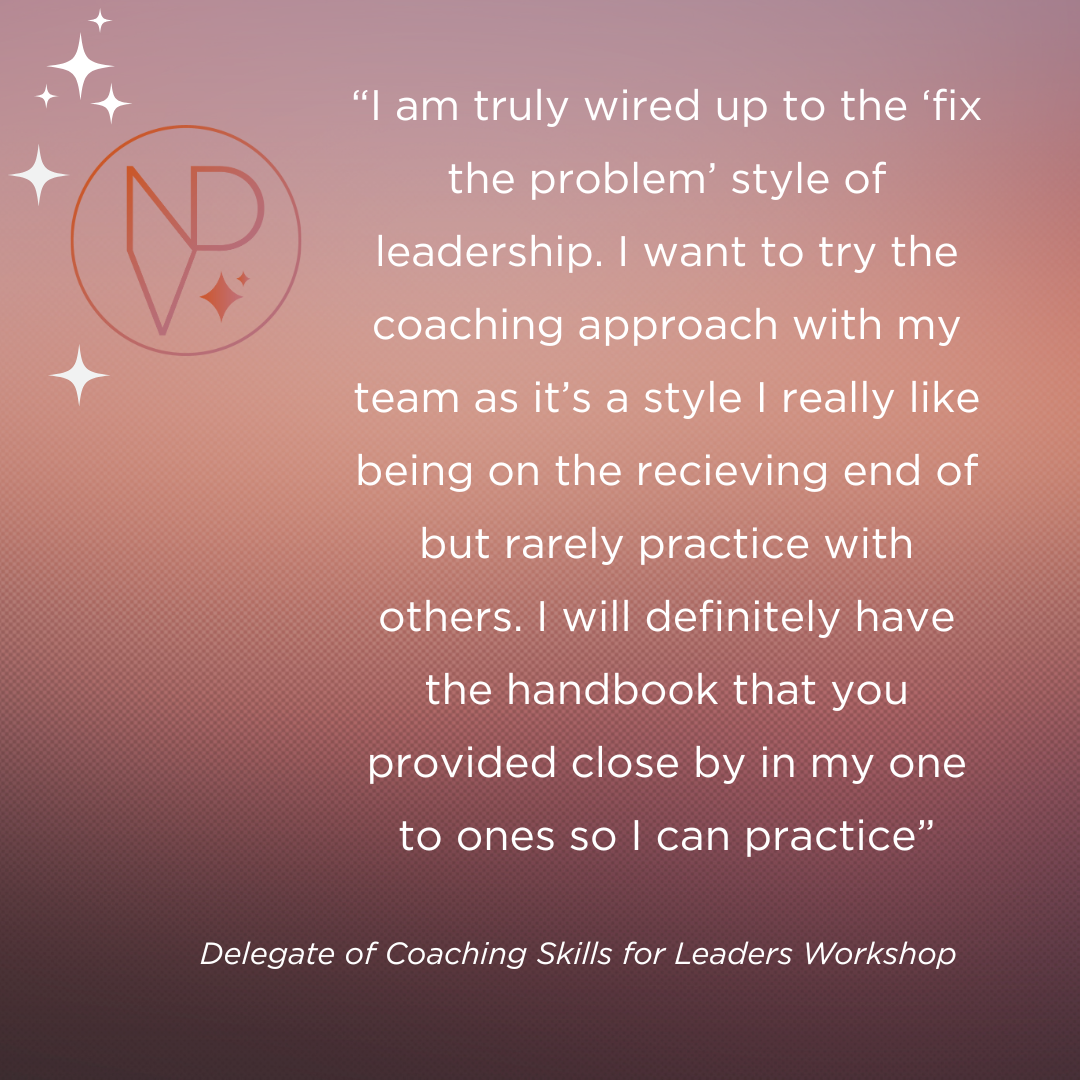One of the best and most important roles of a leader is to start to build leaders around you. Coaching is one of the best ways to do that.
When I was on my leadership journey over a period of twenty years I didn’t know anything about a coaching approach.
In the last five years of my leadership role I had a coach and I trained to be a coach however it was tricky to use a coaching approach day to day with my team.
Any thoughts I did have about coaching my team would soon drift away as time became a pressure, time to have supervision and time to get tasks done didn’t leave much time for a reflective coaching conversation.
Having been a coach for ten years now, I do wonder what a difference it would make if I had adopted a coaching style earlier on in my career.
I know that leaders appreciate their own coaching but often they don’t feel that they are in an environment where they have the time to coach their team. Solving is so much quicker and easier.
One of the best and most important roles of a leader is to start to build leaders around you. Coaching is one of the best ways to do that.
You may not have the time for a full coaching session but there are things you can consciously do, habits you can develop that will support you and your workload and support those around you to self-manage and move towards leadership. It’s a win win.
Here are some ways of introducing a coaching approach to your work:
Let go of solving:
Enter a conversation with a mindset of not solving. Notice when you have the urge to give solutions and answers or end up taking something on yourself ‘because it’s easier’. Hold back.

Ask Powerful Questions:
Instead of providing answers ask open questions that encourage the person to think for themselves. This will encourage reflection, identify opportunities and bring ownership and accountability of a task. Much more empowering too.
- What do you think is the best way to tackle this?
- What’s the challenge you’re facing here?
- How do you feel about the progress you’ve made?
Actively Listen:
Practice listening to understand rather than listening to respond.
Listening to ask the right question not listening to solve.
Notice the urge to offer advice it and tame it.
Apart from anything else it is liberating not having to come up with the solutions all the time. The person in front of you knows what they want to do they just need the space to think.
Provide Constructive Feedback:
Giving feedback in service of others is part of coaching. Declaring what you notice generously, to help the person. If you’re thinking it and you know it would help the persons growth to know it, share it. Be specific and then move it to what could be done differently.
Value time for self-reflection:
As a leader, giving yourself and your team permission i.e. time, for self-reflection is powerful. It encourages continuous learning and self-awareness. It also helps people reflect on actions, decisions and results. Having questions to ask yourself in this time of reflection helps rather than thinking of what the questions are at the time
- What have I learn about myself in this situation?
- What would I do differently next time?
- What strengths did I use in that situation?
Create a safe environment:
Foster a culture where mistakes are seen as learning opportunities, not failures. How? Model it.
By being vulnerable yourself as a leader and being comfortable with making mistakes team members are more likely to open up.
This is the perfect foundation for coaching. Honesty and openness is key. If people know that mistakes are viewed as learning opportunities and they won’t be judged you’re onto a winning culture.
Develop Empathy:
This fits with all the bullet points above, particularly active listening.
Empathy enables you to see things from their perspective, respond with understanding, and guide effectively.
Taking the time to understanding your team, their individual needs, aspirations, and challenges builds empathy. This will go a long way to developing the rapport and relationship you need to have use a coaching approach and to have coaching conversations.
Encourage Autonomy:
Again, this ties in with the previous points. Support your team in developing their own solutions, rather than providing answers all the time. This builds confidence and competence. Guide them with questions, but let them lead the process of coming to a conclusion.
Starting with these steps doesn’t require formal coaching credentials but can make a huge difference in how team members grow and succeed. It’s more about the mindset of coaching, which is centered around support, growth, and empowerment.
If you would like to know more about my Coaching Skills For Leaders one day workshop please feel free to contact me.
Reading:
The Coaching Habit – Say Less, Ask More and Change the Way you Lead Forever. Michael Bungay Stainer ( 2016)
Coaching Skills for Leaders in the Workplace – How to develop, motivate and get the best from your staff. Jackie Arnold ( 2009)

